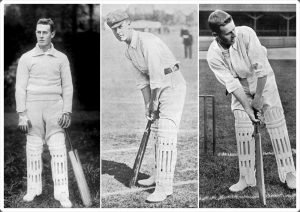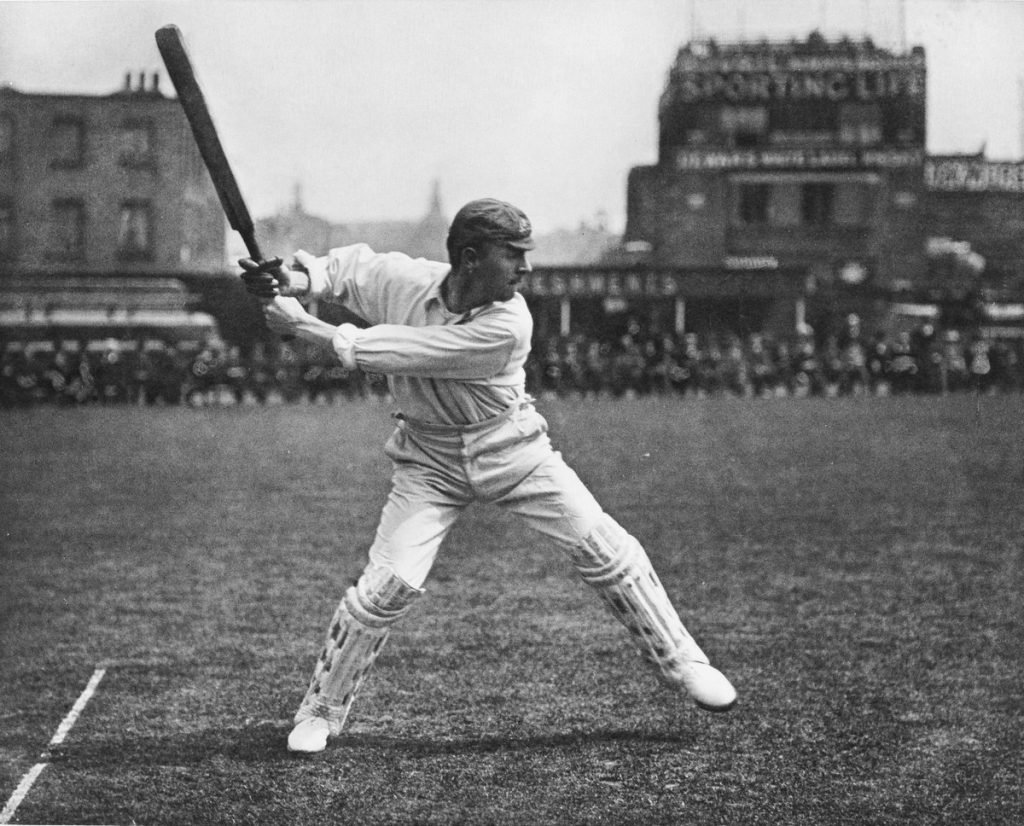Australia has produced many great players for international cricket. Many of them are no more in this world, but their name is forever part of cricket history due to their glorious services to the game. Among them is Victor Trumper, whom another great Australian batsman, Sir Donald Bradman acknowledged as better than him Trumper was the most popular Australian cricketer of the golden age.
He possessed several characteristics that were lesser known to Australians: he was a teetotaler, shy, and unfailingly modest. His batting statistics do not outweigh those of his contemporaries, though he was outstanding in 1902, but all those who saw him speak of genius and style’.
Indeed, C.B. Fry commented that “he had no style, and yet he was all style.” He was the master batsman on rough and dangerous pitches and had the ability to overhaul any type of bowling. As Herbie Collins, the Australian captain of the mid-1920s, asserted, “there will never be another Trumper.” It is no disrespect to the immortal exploits on the playing field of Sir Donald Bradman that this statement remains basically true even today.
It is doubtful if there has ever been a greater batsman than Trumper, especially on the atrociously bad wickets, mere mud piles, and glue pots on which he carved out miniature masterpieces. Most of his memorable innings in Australia, England, and South Africa were full of grace, ease, style, power, and a quickness of movement that can surely never be surpassed.
C.B. Fry, an embodiment of typical English chivalry and gallantry, paid tribute to Victor Trumper. After ‘Plum’ Warner’s victorious English team of 1903–04 returned home with the Ashes with a 3-2 win, they were felicitated at the Lord Mayor’s banquet in London. Fry, in a suddenly inspired moment, got up to propose a toast: “Gentlemen, charge your glasses, I pray. I give you the toast of the world’s greatest batsman. Let’s drink to Victor Trumper—first man in, last man out, on a bad pitch, and against Hirst and Rhodes.”
Actually, Charles Fry was referring to the second Test at Melbourne when Victor Trumper, opening the Australian innings, scored 74 in a total of 122, in which only two other players—his opening partner R.A. Duff (10) and middle-order batsman AJ. Hopkins (18)—reached double figures. Four of Australia’s finest batsmen, Monte Noble, Clement Hill, Sydney Gregory, and Warwick Armstrong, made seven runs between them.
The pitch, by modern standards, was an absolute horror. In today’s cricket, no one would agree to play on a dangerous pitch. The most recent evidence is the Kingston Test between the West Indies and England, which was called off after the delivery of only 10.1 over’s due to dangerous pitch conditions. The Melbourne pitch was also sticky and fully exploited by the two great Yorkshire left-handers, Wilfred Rhodes and George Hirst, the most dangerous bowlers of the time on such viciously bad pitches.
Yet, Victor Trumper played them with mastery and complete command, making it all look so easy. To assess Trumper’s batting ability and powers, the two examples reveal the facts. The English summer of 1902 was a very wet one. It was the spinner’s dream of heaven.
The weather was rainy with the alternate hot sun, wickets were left uncovered, and the drying pitches with the ball rearing head high, twisting, and shooting through at varying pace and height surprising even the bowler with its wayward direction made batting an absolute nightmare. Yet, Victor Trumper, in that awful summer of 1902, scored 2,570 runs at an average of 48.49, with 11 centuries.
At Old Trafford, he scored a fantastic century before lunch to become the first-ever batsman for this historical feat, a rare performance since it was equaled on only three occasions: C.G. McCartney in 1926, D.G. Bradman in 1930, and Majid Jahangir Khan in 1976–77.
As England’s captain, A.C. Maclaren, knew that the slow wicket would turn difficult in mid-afternoon, he devised a containment strategy ‘to keep Victor Trumper for an hour or two’. The English bowlers like Rhodes, Jackson, Tate, Braund, and Lockwood applied their cricketing brains and supreme skill but failed to contain Victor Trumper.
As a result, at lunch, Australia was 173 for one and Victor Trumper was at the crease with an unbeaten 103 Australia won the Test by a razor-edge margin of three runs (one less than Trumper’s score in the second inning). Victor Thomas Trumper was born on November 2, 1877, at Darlinghurst, New South Wales.
He was a brilliant right-hand opening batsman and a medium-paced bowler. He played for New South Wales from 1894–95. His Test debut came in 1899 at Nottingham against England, in which his scores were 0 and 11, but in the next Test match at Leeds, he scored a chanceless 135.
His Test career lasted till 1911, during which he played 48 Test matches in which he scored 3,163 runs in 89 innings at an average of 39.04 with the help of eight centuries and thirteen fifties; his highest score was 214 not out against South Africa at Adelaide in 1910–11.
He also took eight wickets at an average of 39.62. It was said that Trumper could play six different strokes on each identical ball in an over. His repertoire of strokes was amazingly wide-ranging, and his footwork was quick, graceful, and effortless. He was famous for jumping several yards out of the crease to drive with his bat aloft behind him.
One would think he would be out; he stumped umpteen times playing like this. Yet, it is a wonder that he was stumped only once (at The Oval in 1909). Though his scoring rate was abnormally high—almost 70 runs per 100 balls bowled, or about 40 runs an hour—never for a moment did he give the impression of a man in a violent hurry, employing brute force.

His timing was mind-blowingly perfect. His cutting and glancing deflections were performed by wrists of rare flexibility. And, to put the seal on his unique batting technique, he disdained playing himself in and always wanted to hit the first ball for a four. C.B. Fry said, “He played a defensive stroke only as a last resort.” A.C. Maclaren, one of cricket’s all-time greats, summed up the rare genius of Victor Trumper like this: “I was supposed to be a batsman in a grand manner.
Compared to Victor, I was a cab-horse to a Derby winner.” Victor Trumper, plagued by ill health, burned himself out. He died at the tragically early age of 38, a victim of malignant disease. His demise in 1915 plunged the cricket world into shocked mourning and even pushed the grim news of the First World War battle disasters off the front pages.
His funeral caused the streets of Sydney to be blocked with sad-eyed, tearful mourners. He was carried to his last resting place on the shoulders of eleven Australian cricketers. Cricket lovers still believe that there will never be another like Victor Trumper.

Read More
- Doug Ring – The Member of Invincible Team
- Bill Johnston – Bradman Invincible Bowler
- Gil Langley – Former Australian Wicket Keeper
- Victor Trumper – The Greatest Batsman of Golden Age
- 50,000 Runs in all forms of cricket